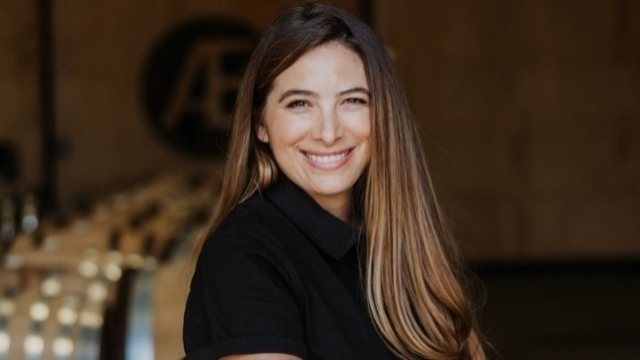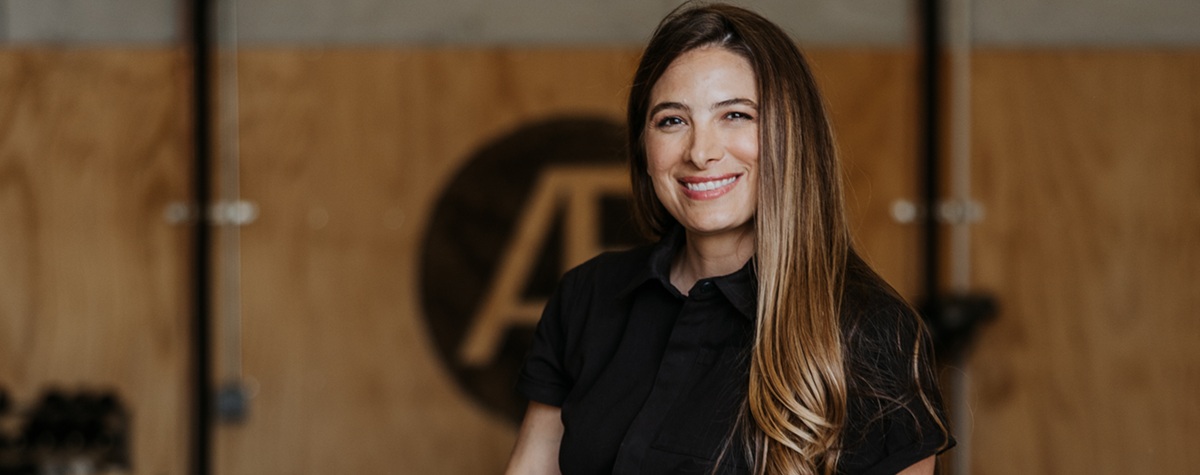In her newly published book, The 21st Minute: Everything You Wish Doctors Explained about Mental Health, she describes the process of sorting grapes as “the ultimate mindfulness marathon”.
She explains: “Sorting grapes involves a group of people working together to sort through thousands of pounds of wine grapes, cluster by cluster, grape by grape, over the course of a very long day. The clusters move along a conveyor belt, passing the eyes, hands, and minds of some very focused vintners. Any grapes not worth eating are tossed out. The sorter must use their eyes, nose, touch, and taste to determine if this is a delicious, perfectly healthy grape. After just a few hours of this job, you become completely engrossed in the sensory experience and pay more attention to a pile of grapes than you ever thought possible, all in the pursuit of making wine only from the highest quality, healthy, delicious grapes.
“In doing so, you prevent contamination of the wine with undesirable components, allow for minimal use of the natural preservative sulphur dioxide, and avoid the need to filter the wine (which cleans the wine but also strips it of character). This mindful sorting facilitates making an age-worthy wine in the most natural way possible without the need for significant human intervention.”
It’s fascinating stuff – combining winemaking and mental health strategies. It got me wondering what advice Dr Krankl – who makes artisanal Rhône-style wines in California’s Ojai Valley with husband Nikolas – has for vintners heading into harvest in the Southern Hemisphere.
She replied: “Harvest is an incredibly exciting time and yet, as a winemaker, I know all too well that it is also filled with long days and unexpected challenges. As a psychiatrist, I would love to tell you about a few ways to maximise your mental strength leading into these intense few months.” Here is her advice...
Three practical tools to promote mental wellness at this crucial time of year
1. Control the Controllable
Focus all your mental energy on things you can control and let go of everything you cannot control so it does not weigh you down mentally. You cannot control the weather, but you can control your response to the weather. Rather than dwelling on that rain in the forecast, focus on how you are going to pivot to make the best damn wine you can, despite the weather.
2. Practice Mindfulness
Having a successful harvest is going to require incredible focus. Did you know you have the power to train your brain to focus? By practicing mindfulness, you train your brain to focus on the present moment, which means you are less likely to dwell on past failures or worry about future challenges, neither of which you can control.
Also, try drinking wine mindfully. Take 5-10 minutes to take a couple sips of wine, paying incredible attention to the sight, smell, taste, and feel of the wine and your thoughts and feelings about the wine. Don’t write anything down, just stay in the moment and experience it.
Time in the vineyard is another great opportunity to practise mindfulness. Take 5 minutes in the vineyard to get in tune with nature, ground yourself and become fully engaged in the present moment, by taking note of: 5 things you can see, 4 things you can feel, 3 things you can hear, 2 things you can smell, 1 thing you are grateful for.
3. Be the Hero
Visualise your goals, be proactive, make a plan, stretch yourself to grow, anticipate roadblocks, remind yourself that you can do hard things, and keep it moving. Be your own biggest cheerleader. If you need a reminder of how strong and capable you are, stand in a hero’s pose for two full minutes. Stand with your feet hip-width apart, chest out, chin slightly up and with hands in fists on your hips, à la Superman or Wonder Woman. Imagine yourself as the hero of your story. Research shows that power posing, even for short periods, increases feelings of confidence and being in control.

In her book, Dr Krankl (above) explains how winemaking has helped her understanding of mental health. She writes: “After years of practising mindfulness and meditation, it finally clicked. Despite years of psychiatry training, including specialised mindfulness meditation training, it was actually my unexpected second career in winemaking that taught me how to incorporate mindfulness and meditation into my daily life. The winemaking process has reminded me about the importance of spending time outdoors, using your hands and senses, being intentional, and most importantly, being mindful.”
She also offers advice on tasting wine for pleasure: “From sommeliers to novice wine geeks, one of the best parts of enjoying wine is slowing down to evaluate and appreciate the wine in your glass. For most wine lovers, this goes far beyond being an alcoholic beverage and much farther down the path of mindfulness. Perhaps in the chaos of our modern world, we are all searching for a little mindfulness, and many of us are finding this in the slow food movement, gardening, home-cooked meals, sourdough starters, and attentive wine tasting… When you drink wine mindfully, just a few sips can take many minutes and leave you with a profound sense of satisfaction and interest.
“While I’d never recommend using wine to solve or escape life’s problems, I do believe that the culture around tending to a vineyard, winemaking, and wine tasting naturally involves practising mindfulness, which is enormously beneficial. Understanding what it took to get the wine in your glass brings a profound sense of gratitude for Mother Nature, the farmer, and the vintner.”
‘The culture around tending to a vineyard, winemaking, and wine tasting naturally involves practising mindfulness’
The Fingers Crossed story
Fingers Crossed is Nikolas and Julia Krankl’s artisanal winery in the Ojai Valley, California. They are hyper-focused on quality over quantity, currently producing 1,600 cases annually.Nik grew up eating grilled cheese and chocolate chip cookies with his cousins at his aunt Nancy Silverton’s La Brea Bakery and Campanile in the 1990s. Following in the footsteps of his food and wine family, he fell in love with coffee in Italy as a teen, culminating in opening an award-winning coffee shop outside Boston alongside his wife, Julia; ultimately becoming a barista champion.
Back in Los Angeles, Nik worked with Nancy, Walter Manzke and other top chefs as a coffee consultant until he got the itch to become a winemaker in 2012. He cut his teeth working for his parents at Sine Qua Non and, in 2017, decided to chase a dream and launch his own label with Julia, a Harvard and UCLA-trained doctor.
The Fingers Crossed style is unabashedly Californian: sun-kissed wines that are decadent, perfumed, opulent and regal, yet light on their feet. The couple sources grapes from several of Santa Barbara County’s top vineyards, including Bien Nacido, Stolpman, and Sanford and Benedict.
Each year, Nikolas and Julia craft their own distinctive artwork to adorn their bottles and custom wooden boxes. Every label tells a unique story that excites the wine lover and connects them with the brand through ever-evolving art mediums such as photography, woodcuts, Polaroid emulsion lifts, paint and collage.
Where does the title of the book come from?
One in six American adults take psychiatric medication and yet doctors are only allotted 20-minute appointments that are spaced out by months at a time. Dr Krankl’s book starts at minute 21 and is filled with everything patients wish their doctor had time to explain about mental health.All proceeds from the sale of The 21st Minute will be donated to mental health nonprofits.

 English
English French
French







.png)


